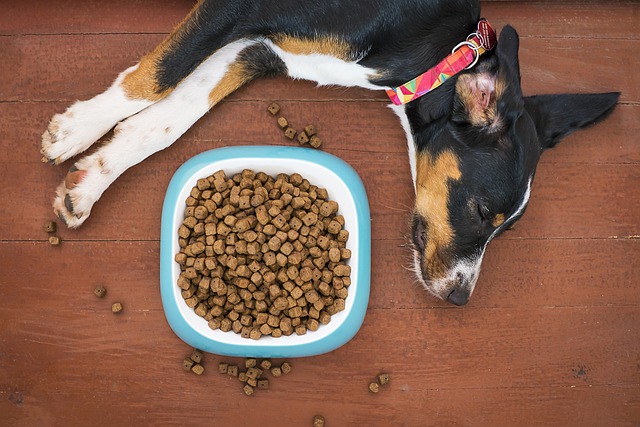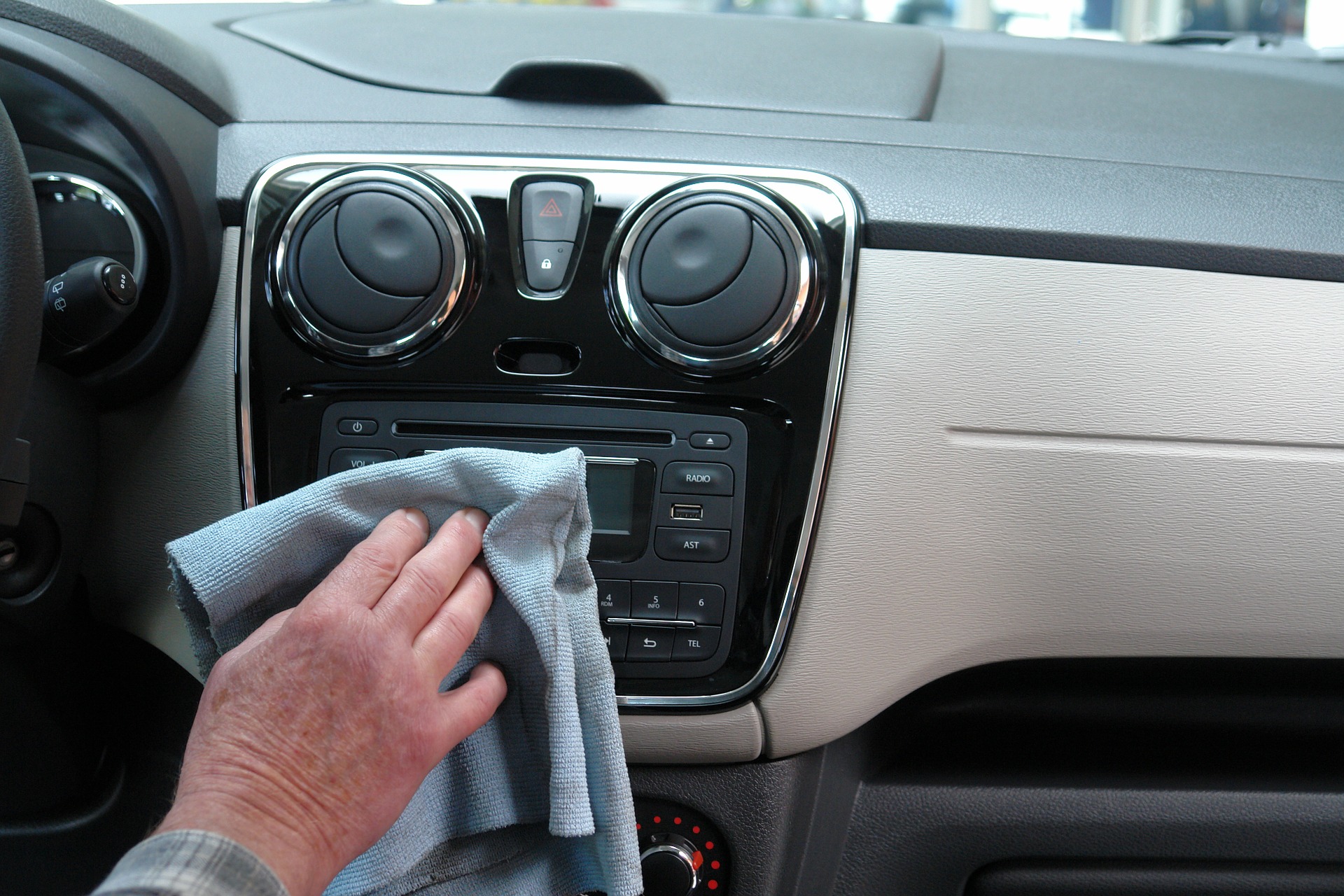If you’re a dog parent, you’ve probably seen your pooch eat anything and everything from your slippers to the garbage! But, it’s actually really important that, just like you, the furry members of your family are also getting a balanced and nutritious diet, as it can make a big difference to their health.
And this is sure to make you wonder, are you giving your furry friends the best dog food for them? Well don’t worry. We’re here to answer all your questions on dog nutrition and the best food to give your dogs.
What nutrition does your dog need?
It is very important to give your fur-baby the best dog food to make sure they get all the nutrition they need. So you might be asking yourself, then what is the right and most healthy food to feed your dog?
Well, your dog’s requirements will tend to vary based on their age, breed, weight, and any other special needs. But, in general, you need to make sure that you’re feeding them dog food that has a good balance of six main types of nutrients – proteins, carbohydrates, fats, fiber, vitamins, and minerals. If this sounds familiar, yep! those are basically the same stuff humans need too! But, doggy stomachs work a little differently from yours, so they tend to get these from a few different sources:
Well, let’s look at each of these things to simplify them:
So, when you buy any dog food, make sure to check the ingredients on the packaging so that it has all these crucial nutrients. You can also avoid foods with any artificial flavors and colors that don't add value to the food.
What is the best food for your dog at different ages?
Your precious pup will grow up before you know it, and they’re going to have some different nutritional needs at these different stages of their lives. Just like you wouldn’t eat baby food as an adult, even your pet pooch can't be expected to go on eating puppy food as a full-grown dog! So, it’s very important to take care of your dog’s nutrition based on their age.
Puppy (0 – 12 months)
If you’ve ever seen a puppy you know that they're basically tiny furry balls of energy! And since puppies grow very very fast, and that means that they need highly nutritious food with lots of proteins and vitamins to help your fur baby to grow big and strong. They also need to eat more frequently as they use up a lot of energy. You can start off with around four meals a day and gradually reduce it to two times a day.
Adult (1 – 7 years)
Puppies become fully grown adults at 12 months (so soon!). And around this time, you will need to transition your pup to adult food. Again, you’re going to need to make sure that it’s the right food for your pooch’s breed, size, and weight (just have a quick chat with your vet!)
Another thing to keep in mind is how active your dog is. If your furry friend loves to run around and play all day, they might need more calories than if they spend their days lazing around in bed! 😊
Mature (7-11 years)
When your precious furball is past 7, they’re starting to get a little bit older, and also probably a little bit slower. This means that you might need to look for the kind of dog food that is rich in nutrients (to make sure they maintain that puppy-spirit!) but with a lower number of calories (to make up for that slower metabolism).
Senior (11+)
If you have an older dog, you might want to consider cutting back on how much food you serve your pooch at each meal (just to avoid any weight gain from less activity). You could also look for dog foods that contain fewer minerals so that there is less stress on your dog’s kidneys. Be on the look out for any major changes to your furry BFF's weight or eating habits, as that could be a symptom of a health issue.
Other factors you would need to look at are your furry friend’s weight, size, breed, and their level of activity. You can also ask your vet if you need to get any food specifically for health issues like dental care and stomach issues.
*Keep in mind the above age ranges and information are just guidelines and your own dog might actually age faster or slower due to any number of health issues.
How to find the best dog food?
Once you keep in mind your pooch’s age and other factors, you’re going to want to go out there and find the best food for your dog. With so many dog food brands out there, it’s become quite hard to choose the right food for the furriest members of your family. But, don’t worry. It’s actually quite easy to find what’s best for your little fur ball.
First of all, consult with your veterinarian and they can tell you exactly what brands or mixes will work best. If you want to opt for home-made food, they can even tell you what to include in your furry friend’s meals!
If you're going to a pet store or looking to buy dog food online, just make sure to check that the food you pick fits your doggy’s breed, age, weight group, activity level, and any special health needs (like for example a pooch with a sensitive stomach). Once you find the foods that fit, just check through the ingredients listed to make sure it’s healthy!
But, in case you’re still not sure what to choose, why don’t you just narrow it down using these questions:
Should you get Wet Dog Food or Dry Dog Food?
When it comes to the nutrients your dog needs, both wet dog food (which is the soft food you get in a can) and dry dog food (it’s the hard stuff that’s also called “kibble”) have everything your dog could ever need.
Generally, wet food is better for older dogs who have trouble chewing, picky eaters, and apparently, it also tastes better to dogs! On the other hand, dry food has a much higher energy content which is perfect for active pooches, and it also stays fresh for a whole lot longer.
Of course, you don’t have to pick just one! You can even go ahead and feed your furry-BFF a combination of the two.
Should you give your dog homemade food?
It’s perfectly okay to feed your dog a pure kibble (or wet food) diet. But if you want to mix it up with some home-cooked food, that’s great too. Just remember that, as much as it may seem that way, your pooch isn’t a human! This means that they can’t always eat what you’re eating so you need to be careful what you cook for your dog.
Generally, try to go for small amounts of cooked meat (like boiled chicken or lamb) along with some veggies for fiber (pumpkin and carrots are easy to add) as well as rice or chapatis for carbs. Avoid giving your dog any food with sauces or cooked bones, as they are not good for them.
Should you feed your dog raw meat and eggs?
Giving your dog raw foods like meat, bones, and eggs (which is called “raw feeding”) is okay, but they can cause unbalanced diets, so always check with your vet. Raw food diets don’t have any additives, sugars, or dyes so some people think of it as organic food for pooches.
But, raw meat and eggs can also end up carrying bacteria, like salmonella, that can make your dog -- and the rest of the family -- sick. So, if this is something you want to try, look for human-grade meats and make sure it’s from a place that is really really clean.
When it comes to bones, while small bones (that can be consumed whole) and cooked bones can cause broken teeth or splinter and lead to stomach issues, bigger bones (that are much larger than your dog’s mouth) is actually great. When your pooch gnaws on it can help clean and strengthen their teeth. Just try to restrict them to one to two bones a week.
Which food should your dog avoid?
Every dog parent knows the routine – you sit down for dinner and your furry baby turns those big puppy-dog eyes to you to beg for food. It seems so hard to resist, but you must! Giving you dog human food can actually be harmful, as it’s often too rich and fatty for a doggy’s digestive system (and this is especially true for restaurant leftovers). Sometimes, human food also has ingredients that are toxic to dogs, such as:
Onions and Garlic – Onions and garlic are super toxic for dogs and can lead to anemia and serious damage to the red blood cells.
Cooked bones – Unlike raw bones, cooked bones tend to be smaller and can end up splintering and stick in the throat or damage your pooch’s stomach or intestine!
Artificial sweeteners – These often contain a chemical called xylitol, which can be extremely harmful, as it causes liver damage and might even result in a life-threatening drop in your dog’s blood sugar.
Milk and Milk Products – Dairy products can upset your dog’s delicate digestive system and cause diarrhea or lead to food allergies. Cheese, in particular, is too calorific for them.
Macadamia nuts and Almonds – These nuts are very toxic to your dog and can cause everything from weakness and diarrhea to paralysis.
Chocolate – By now you’ve probably heard that chocolate is really bad for dogs and can cause severely upset stomachs. Generally, the more chocolate consumed the worse the symptoms will be. Similarly, the darker the chocolate is, the more dangerous it is to your pup.
Grapes and Raisins – While grapes and raisins are not harmful for some dogs, in others they can lead to kidney failure in others. So, it’s definitely not worth the risk to find out!
Other things you should not feed your dog are avocados, alcohol, caffeine. If you think your furry BFF has accidentally ingested any of these substances, a quick call to the vet would be a good idea.
Just like with what you eat, choosing the right food can ensure a better life for your furry friend too. It can help them stay healthy and active. So as a dog parent, it’s important that you feed your pooch the right food for each stage of their lives.
It might take a little time for you to find the best food for your dog, but since it could mean that much more enjoyment for your four-legged best friend, we’re sure it’s completely worth it!




